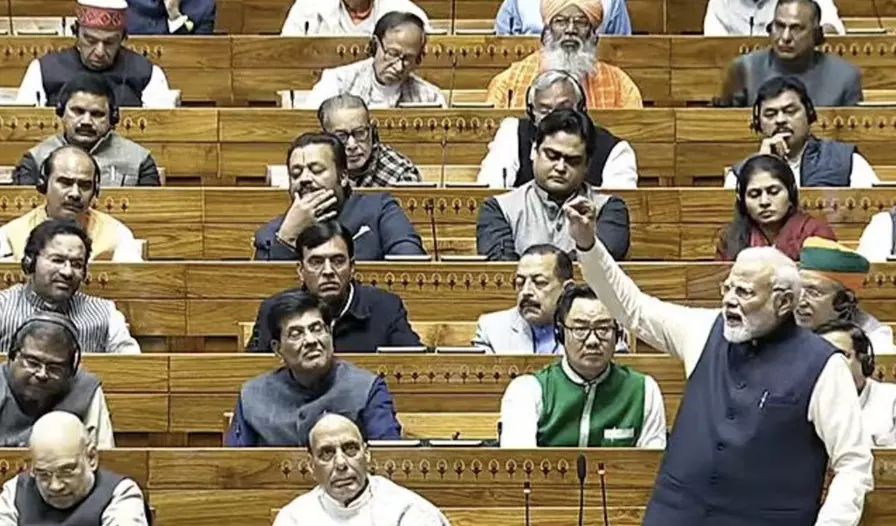JPC to review 'One Nation, One Election' Bills: An overview of past draft laws under scrutiny
JPC to review 'One Nation, One Election' Bills: An overview of past draft laws under scrutiny

The central government has tabled two bills in Parliament to push the 'One Nation, One Election' proposal. Following a heated debate, the bills were sent to a Joint Parliamentary Committee (JPC) for further scrutiny. Here's a look at key bills that have been previously reviewed by JPCs.
One Nation, One Election: The Narendra Modi-led central government introduced two bills in the Lok Sabha on Tuesday to facilitate simultaneous polls. If passed, these bills will enable Constitutional amendments to allow elections to state assemblies and the Lok Sabha to be held concurrently.
The ONOE proposal sparked a heated debate in the House regarding the benefits of election reform for a populous country like India. Consequently, the bills were sent to a JPC for detailed discussions.
Referring Bills to JPCs: Referring bills to JPCs ensures thorough scrutiny of draft laws. However, the practice has seen a decline in recent years. According to PRS Legislative Research, only 16% of bills were referred to committees for detailed scrutiny in the 17th Lok Sabha (2019-2024), significantly lower than in previous Lok Sabhas. Below are some major bills that were sent to JPCs in recent years.
WAQF Bill (2024): The WAQF (Amendment) Bill, 2024, introduced in the Lok Sabha in August, aims to introduce reforms such as digitization, enhanced audits, improved transparency, and legal mechanisms to reclaim illegally occupied properties. The JPC, led by Jagdambika Pal, has held 27 meetings in Delhi and will continue discussions as its tenure has been extended.
Forest (Conservation) Amendment Bill (2023): Introduced in March 2023, this bill focuses on amending the Forest (Conservation) Act, 1980. A JPC under Professor Rajendra Agarwal examined the bill, holding nine meetings and presenting its report on July 20, 2023.
Jan Vishwas Bill, 2022: The Jan Vishwas (Amendment of Provisions) Bill, 2022, was referred to a 31-member JPC led by PP Chaudhary. The committee met 10 times and submitted its report in March 2023. The bill aimed to amend 42 laws across sectors such as agriculture, environment, and media and publication.
Biological Diversity Amendment Bill (2021): Introduced in December 2021, this bill sought to simplify compliance requirements for domestic companies and decriminalize offences under the Act. A JPC led by Sanjay Jaiswal reviewed the bill, holding 15 meetings and submitting its report in August 2022.
Personal Data Protection Bill (2019): The JPC on the Personal Data Protection Bill (2019) was formed in 2019 and held discussions for two years, meeting over 78 times before submitting its report in December 2021. The committee was chaired by PP Chaudhary.
Citizenship Amendment Bill (2016): Introduced in 2016, this controversial bill sought to amend the Citizenship Act, 1955, to expedite Indian citizenship for religious minorities from Afghanistan, Bangladesh, and Pakistan. A JPC led by Rajendra Agrawal examined the bill, submitting its report in January 2019. The bill was subsequently passed by the Lok Sabha in January 2019 and by the Rajya Sabha in December 2019.
These examples illustrate the critical role JPCs play in scrutinizing significant legislative proposals, ensuring detailed examination and informed decision-making in Parliament.

